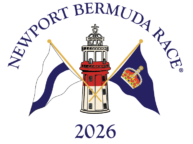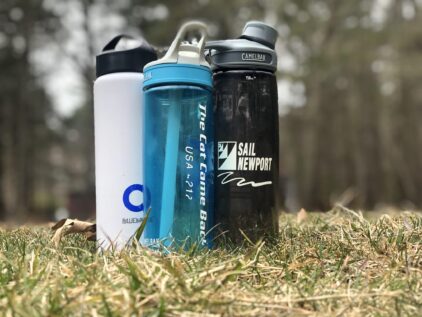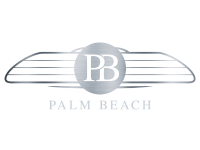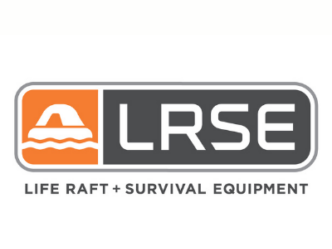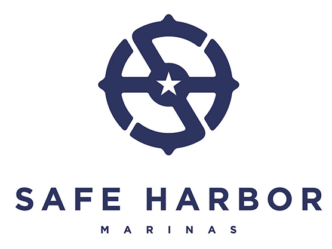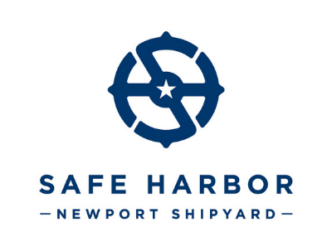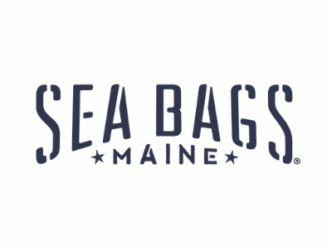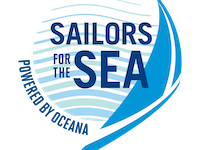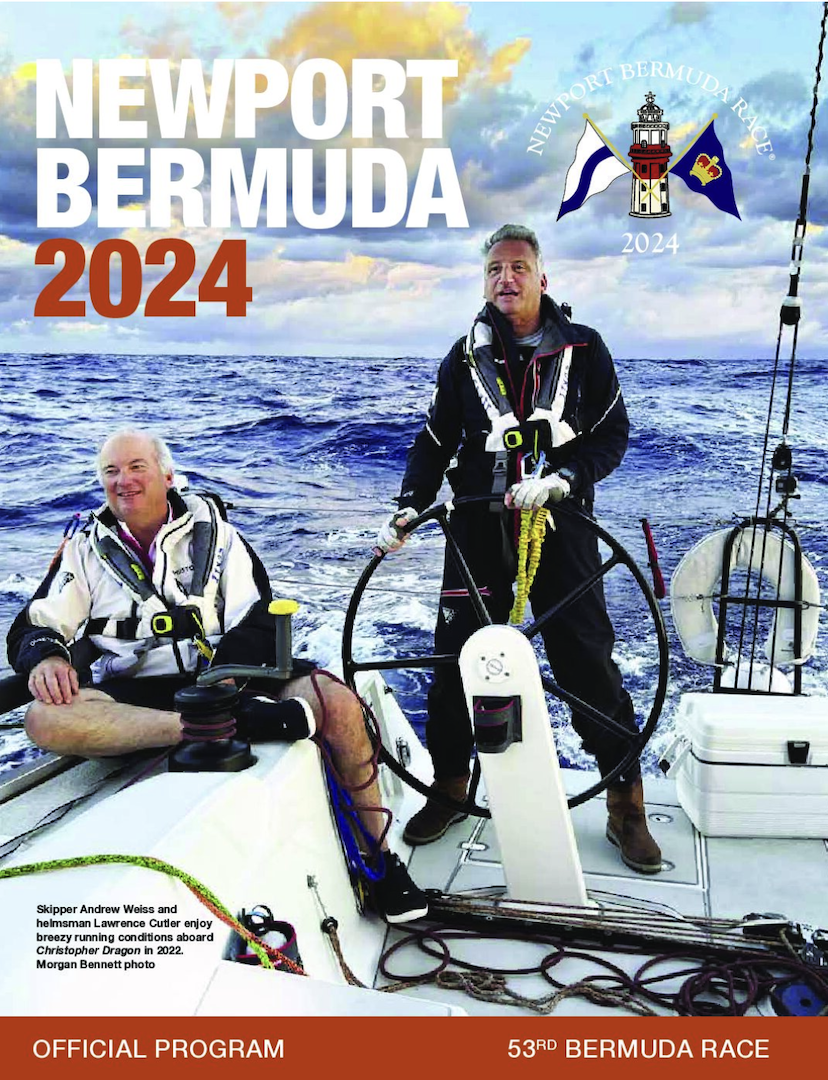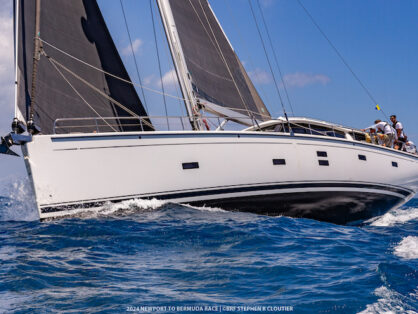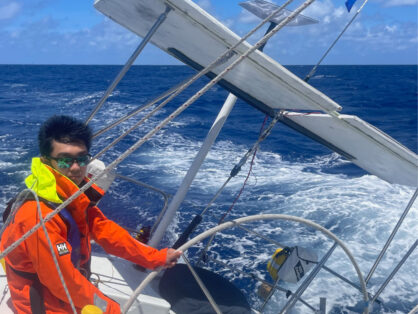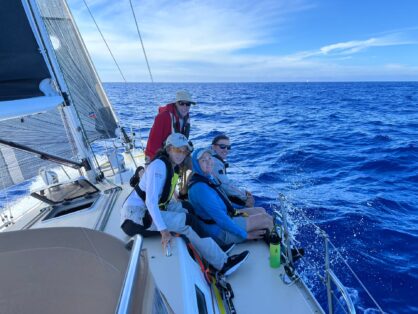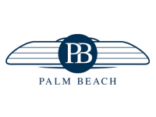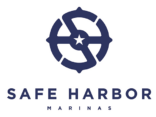Race captains in the 2022 Bermuda Race were advised by the Notice of Race to organize their race effort not only in terms of physical and safety preparedness, but also to integrate ocean-health considerations into race planning and provisioning. Organizers subsequently brought focus to this by asking skippers to designate a crew member as “Environmental Steward.”
The E-Steward program evoked a range of reactions from enthusiastic to curious to skeptical as some questioned the necessity or perceived it as an intrusion into established race preparations and procedures. One skipper bluntly questioned the program’s value, underscoring the challenge of integrating environmental stewardship into a sport where traditional practices are deeply ingrained.
Despite these headwinds, 2022 Race Chair Somers Kempe remained steadfast, and approximately 50 E-stewards were named for 2022. This was a significant step for the Race, raising awareness of best practices before, during and after racing, in keeping with the Sailors for the Sea Clean Regattas program. (The 2022 Race went on to achieve Platinum Clean Regattas certification for the first time.)
The E-Steward program also aligns with one of the six major activities of the newly created Bermuda Race Foundation, namely educating participants in environmental stewardship and seeking ways to make the race sustainable in the future.
Andrew Kallfelz, 2024 Race Chair, has been equally supportive, and we’ve set a goal to double the number of E-stewards, building on the initial momentum, and enhancing the appeal and perceived importance of the E-steward role among all race participants.
Dave Johnson, of Jamestown, R.I., sailed in 2022 on Andrew’s Arcona 46 Safir and was among the first to step forward and help answer the question: what does an e-steward do? His Guidance for E-Stewards (see the race website sustainability page) helped get the ball rolling.
“Our crew had not considered me as the type of person who necessarily focused on ‘green’ causes or sustainability,” says Dave, whose initial challenges were to demonstrate passion for the topic and then make sure the entire crew supported the strategy.
“I convinced them there were real actions we could all take to make a difference. By race time, everyone was onboard with the plan (literally),” Dave says.
When captains execute the critical task of assembling crew, the NBR entry management system gives them an option to assign a sailor to be the E-Steward, a process that mirrors the way other roles like navigator, watch captain, safety officer and cook are designated.
Karen Harris is sailing in her first Bermuda Race in 2024 aboard Stephen Brownlie’s J/133, Assarain IV out of Atlantic Highlands (NJ) Yacht Club. She has taken on the roles of both cook and E-Steward for the 10-person crew.
Sailing has taken her to the turquoise waters of Tahiti, Belize, and the Virgin Islands. Closer to home, however, she regularly encounters the harsh realities of marine pollution in western Long Island Sound. “We have all been appalled by garbage slicks,” she says, “and the dangerous debris like the mesh potato bag that ensnared my prop just prior to a race start off City Island, N.Y.”
In addition to reusable lightweight bowls and dedicated utensils for each crew member— a common practice these days—she plans to eliminate all unnecessary packaging before leaving the dock. Managing food waste in offshore racing requires a strategic approach that balances limited space, environmental considerations, and the practical aspects of life at sea. Harris gives a shoutout to Reli Compostable garbage bags.
Paul Cunningham is a compass adjuster and nautical surveyor who has logged thousands of miles offshore including seven Bermuda Races. This year, he fills the dual role as co-skipper and E-steward on Gunga Din, a Sweden 41 for which antifouling paint and meticulous engine maintenance are at the top of his eco-strategies.
The five members of the Gimple family will combine their experience this year (11 Bermuda Races in all) sailing their Archambault 40RC Banter out of Stonington, Connecticut. Tori and husband Matt have witnessed daughters Lindsay and Megan and son Eric, growing-up racing on youth sailing teams where the focus was heavily on sustainability.
“They were inspiring in the ways they valued the environment and brought good ideas to both the race boat and also at home,” Tori recalls.
Tori signed on as an e-steward in her first Bermuda Race in 2022 and recalls how their choice of larger-container water bottles was not ideal, as it led to issues securing the bottles and spillage when refilling took place. “In retrospect, had we practiced our ideas during our preparation sails, we would have realized the issues and had time to find a solution.”
This led Megan to focus efforts this past summer on experimenting with the Aquabrick stackable water/food containers. “It was a solution that was largely successful and underscores how testing out solutions in advance makes sense,” Tori said. “We are thinking of filling them halfway and freezing them in our chest freezer pre-race to augment our cold-water supply as well.”
The family crew also plan to use washable, recyclable aluminum food containers. (Tin and aluminum are among the commodities Bermuda recycles, though ideally racers will return their recyclables onboard to the U.S.)
Sailing the X-35 racer/cruiser Havoc out of the Cedar Point Yacht Club in Westport, Connecticut, Stephen Fisk has the unique experience of being a recreational oyster farmer for a decade. He is well aware that what goes into the water ends up in the food chain.
He has sailed 11 Bermuda Races. This will be his first as a skipper/owner, double-handing with Paul Craine. Both are voices for sustainable practices surrounding maintenance, storage, upgrades, and deliveries of vessels. Fisk says, “As sailors, it is our responsibility to be as green as possible so future generations can enjoy the wonders of the aquatic environment we play on.”
Fisk’s pet peeve is the prevalence of Mylar balloons, which he describes as environmental grenades. Often, he detours during his day sailing to retrieve these balloons from the waters of Long Island Sound.
“Hiking has the philosophy of ‘Leave only footprints and take only memories,’” he says. “Sailing should be very similar. How about, 'Leave only a wake and enjoy the memories.’”
A veteran of nine Bermuda Races, Chan Reis has led the event’s sustainability effort since 2020. See bermudarace.com/race/sustainability/ for more info and to join the team!
This article appears in our 2024 Official Race Program:
